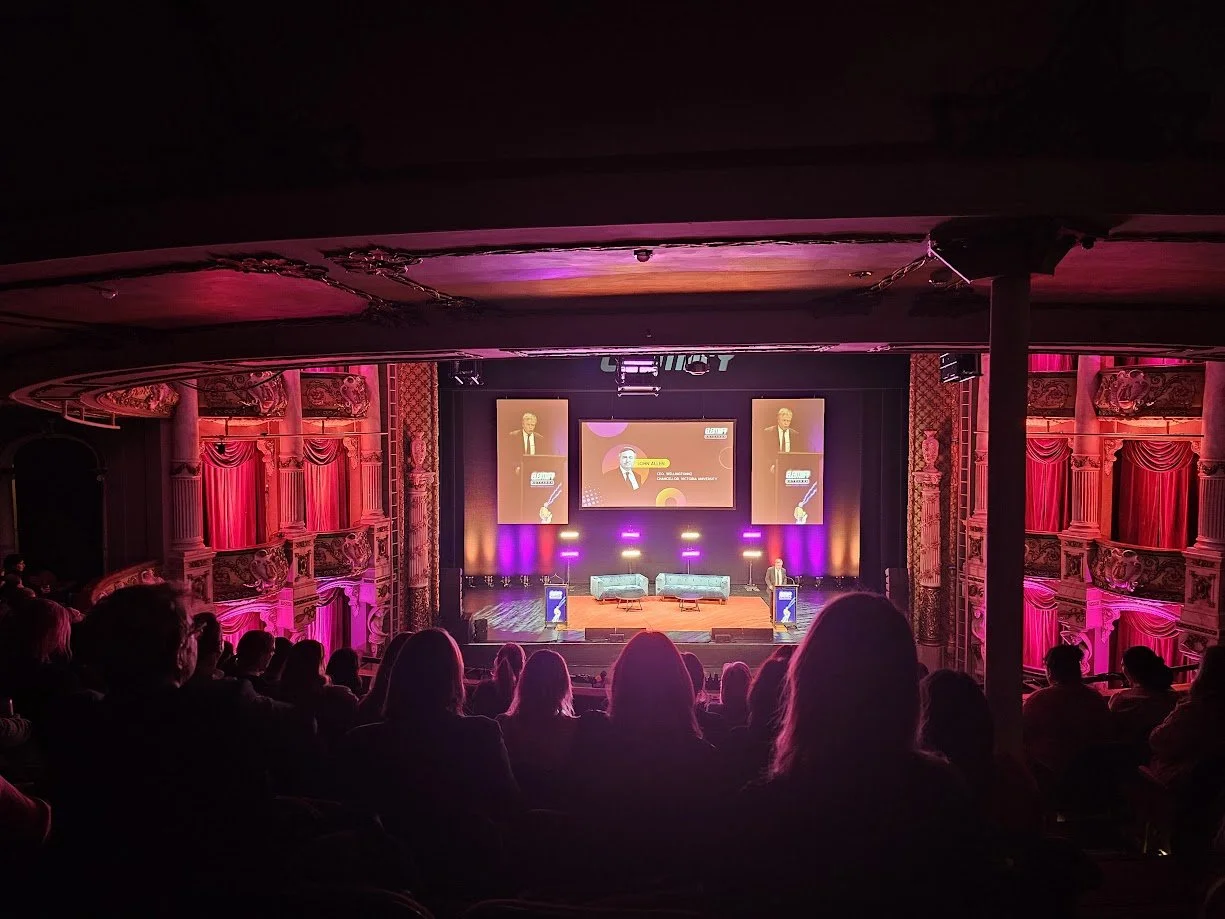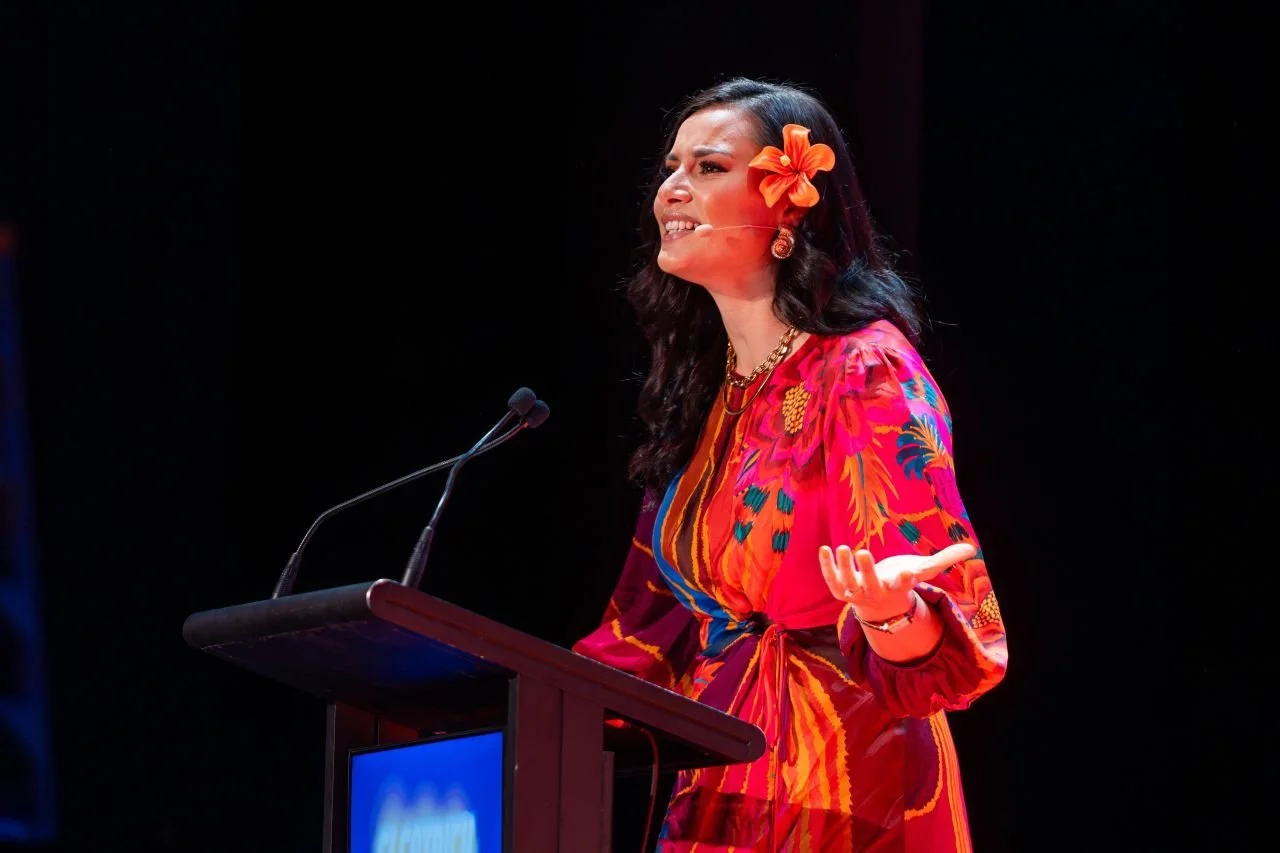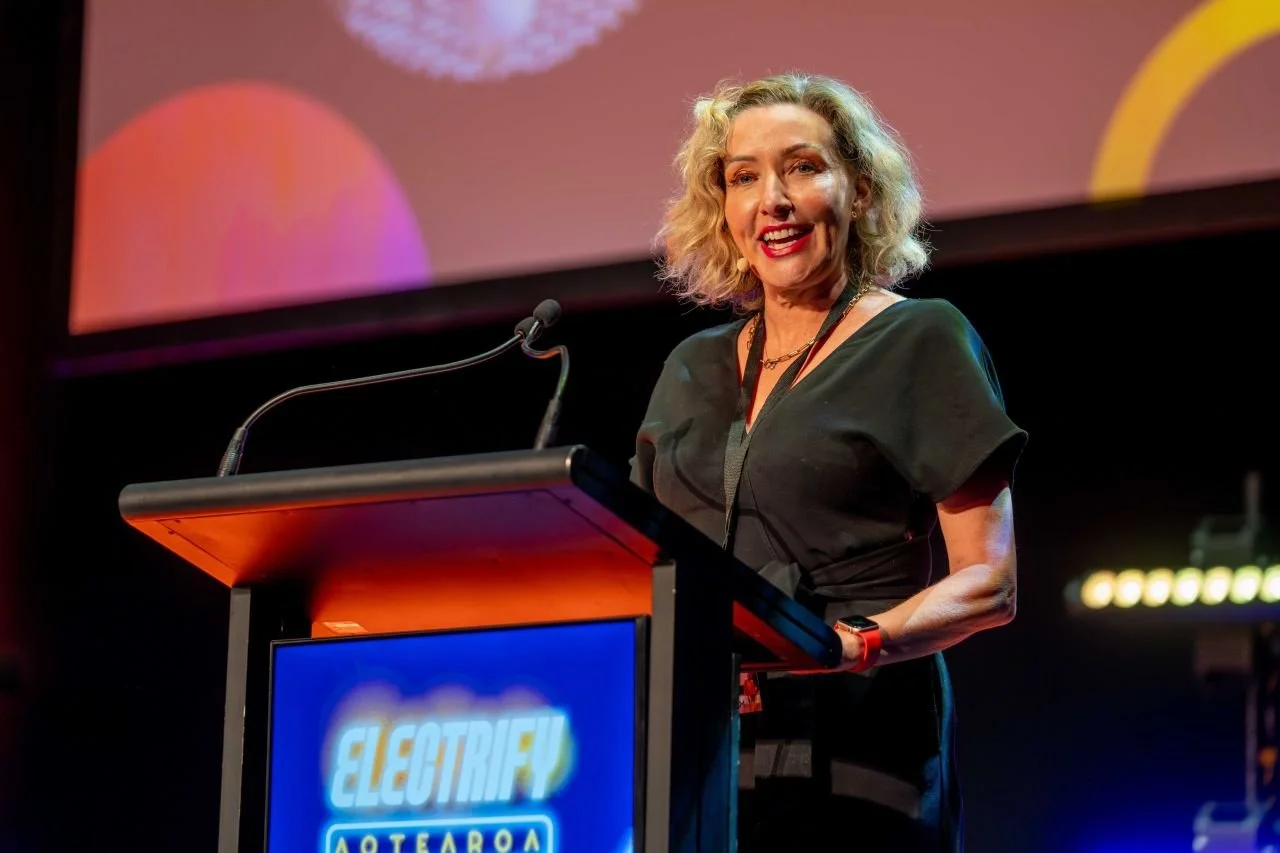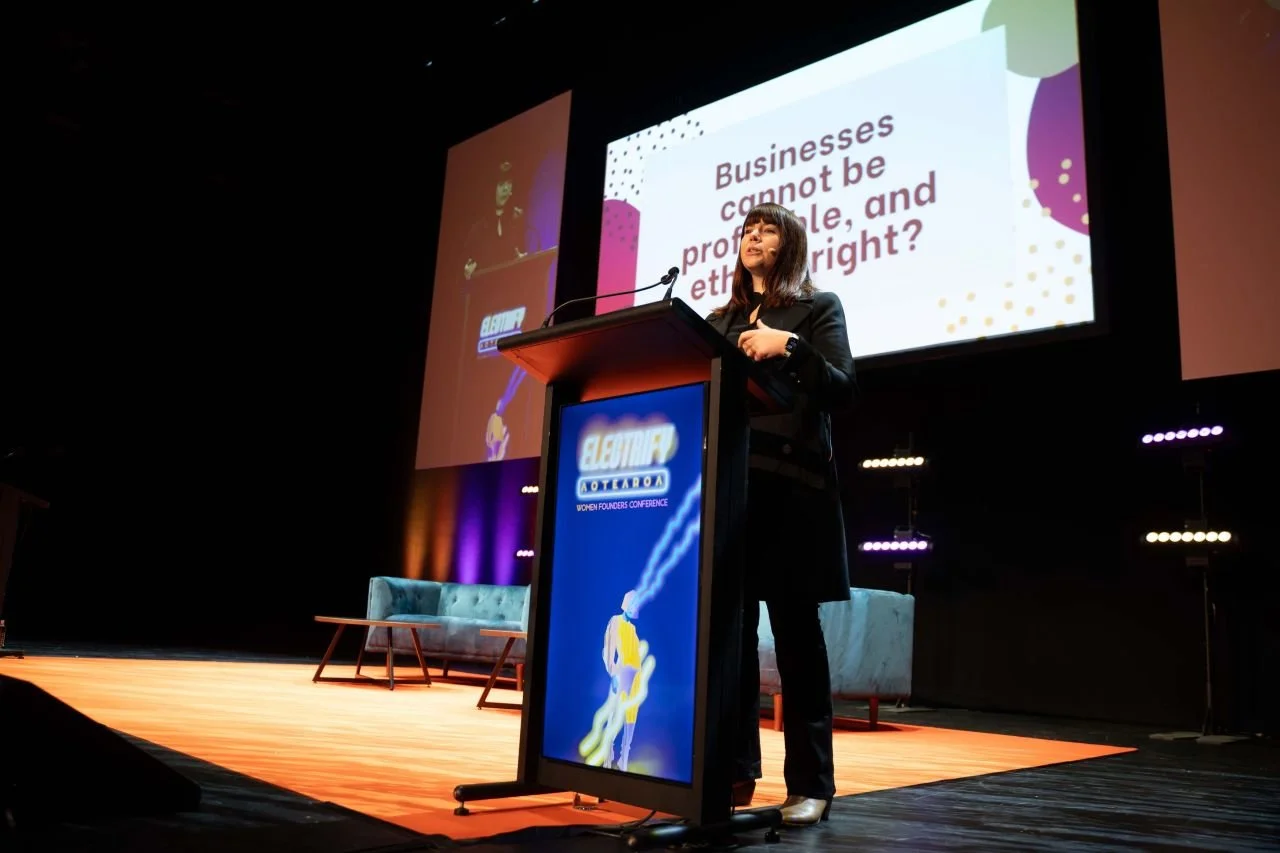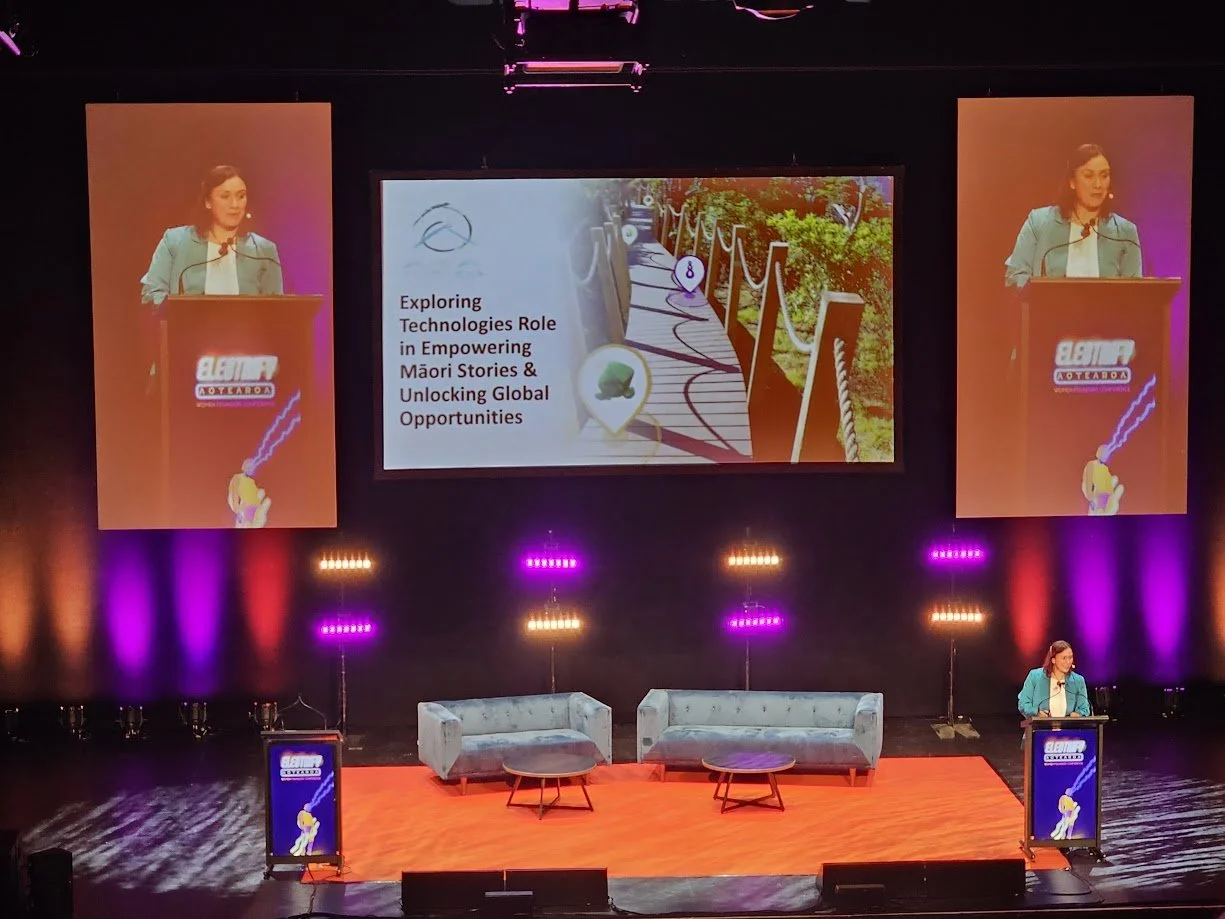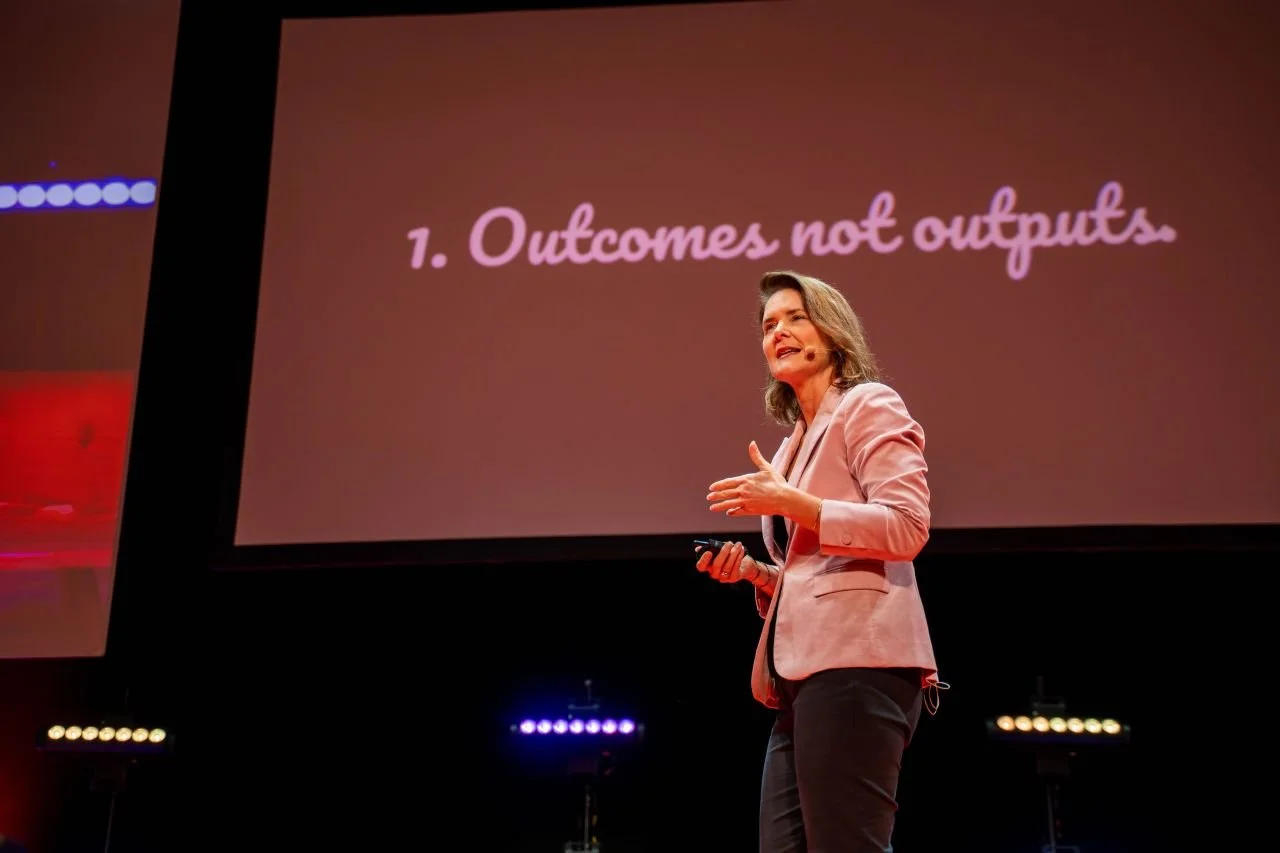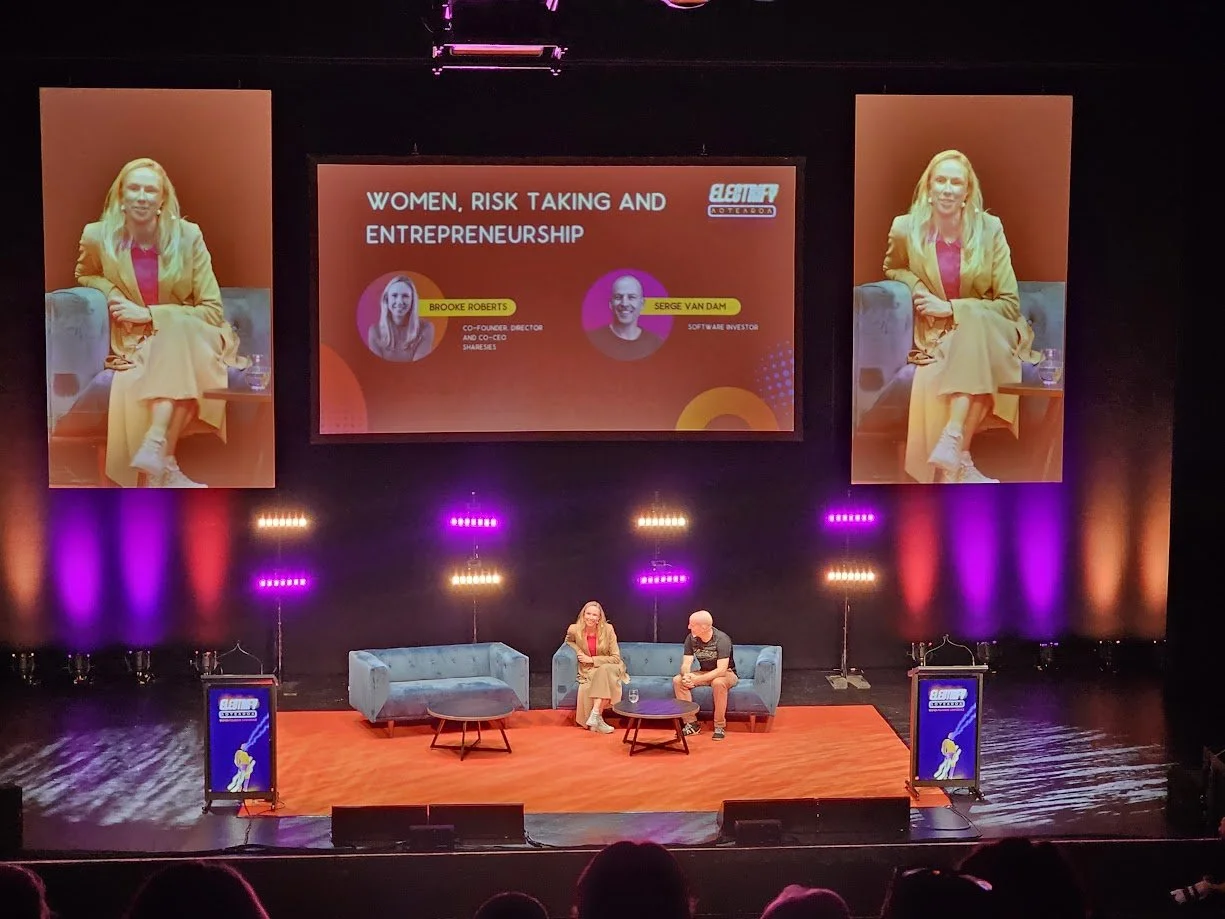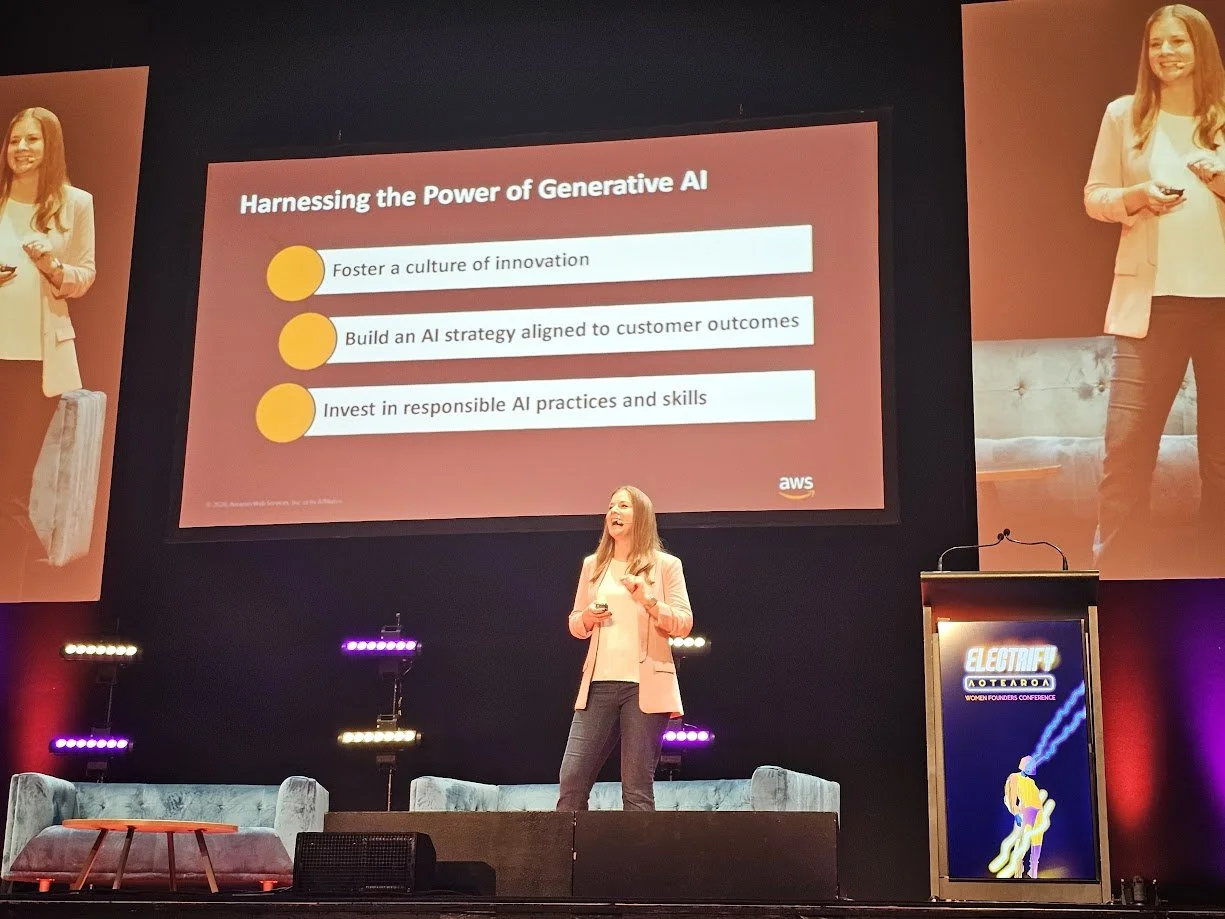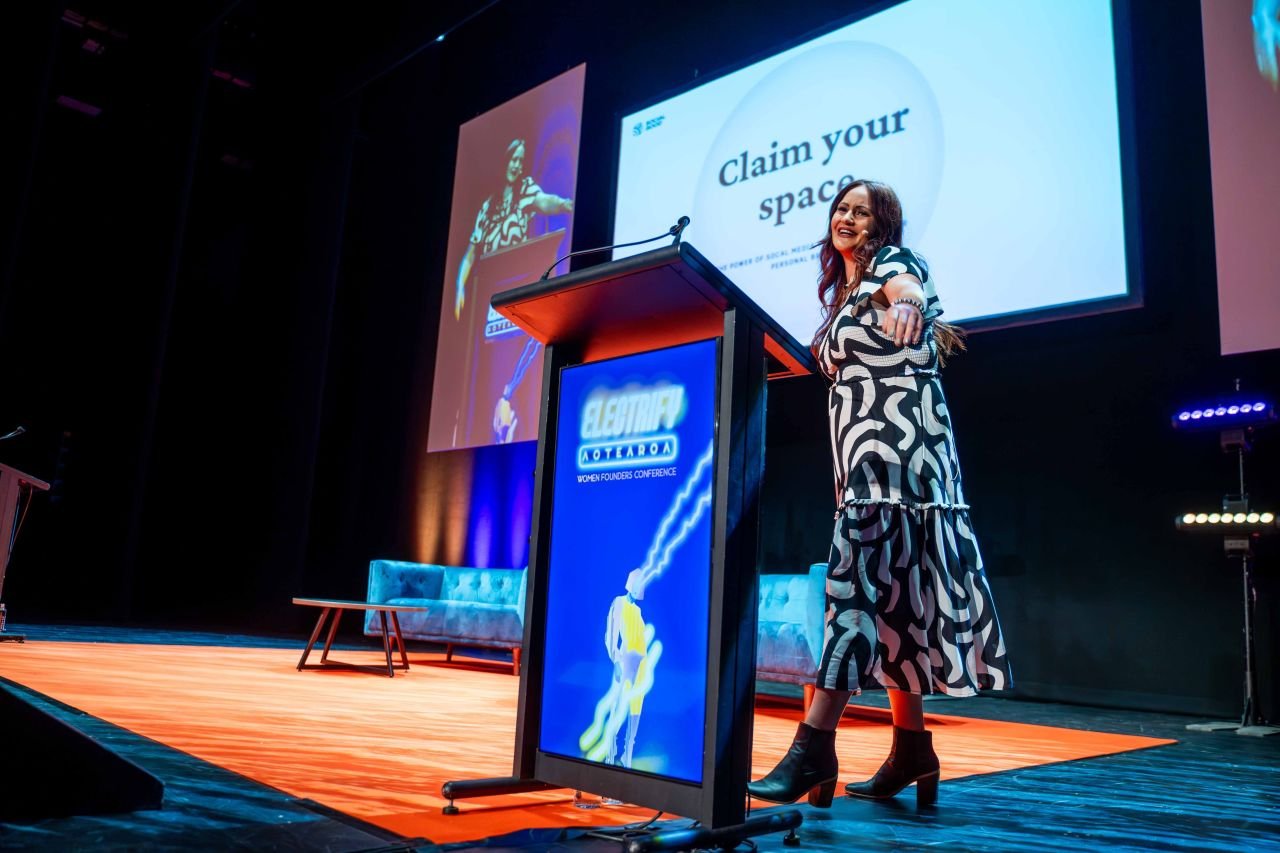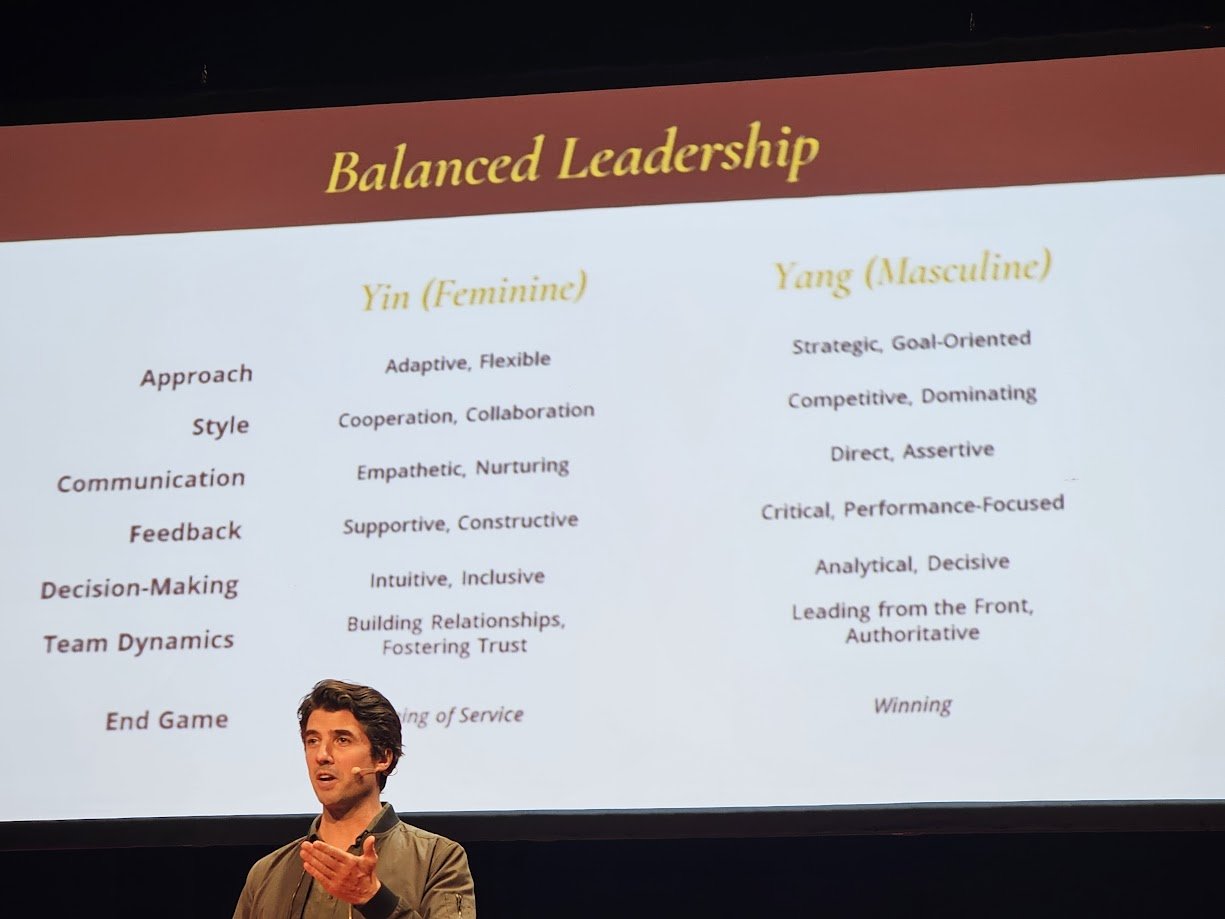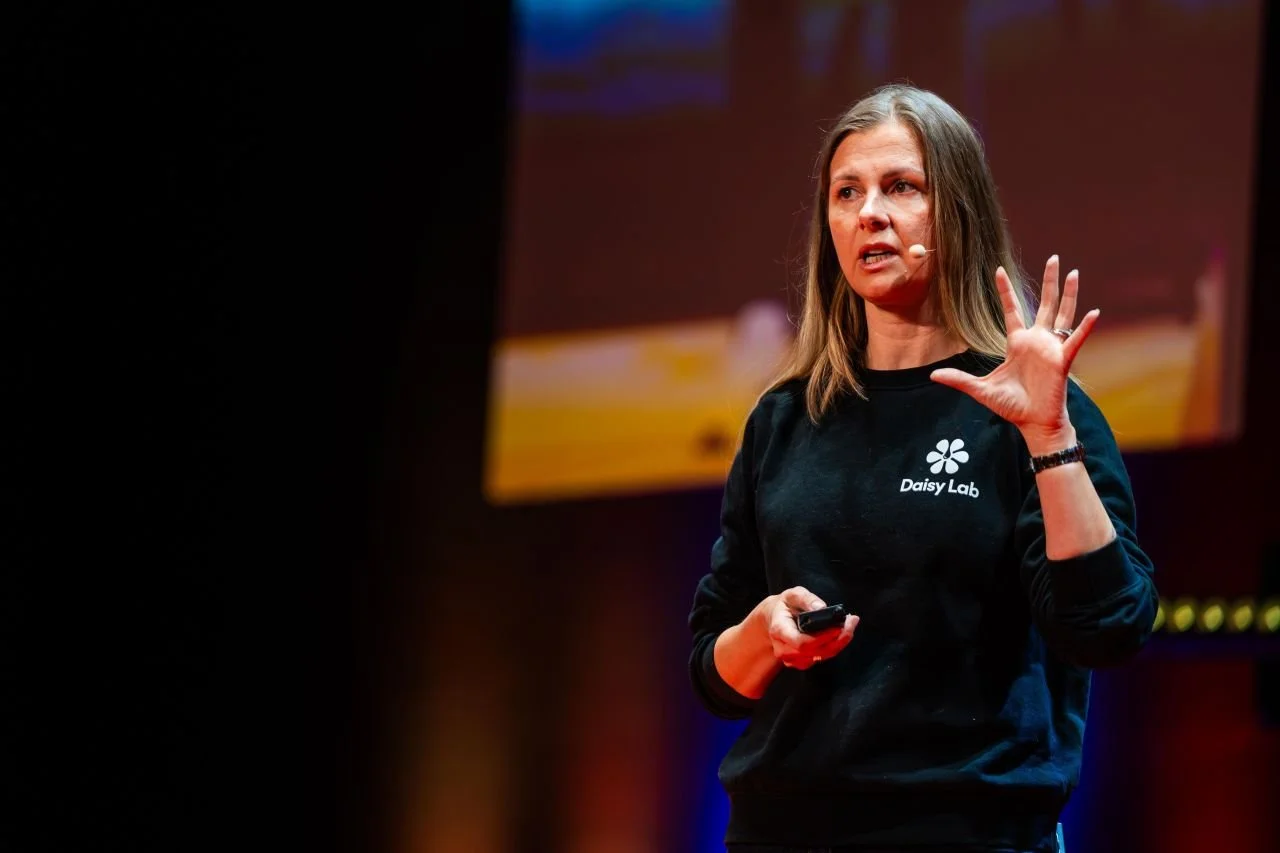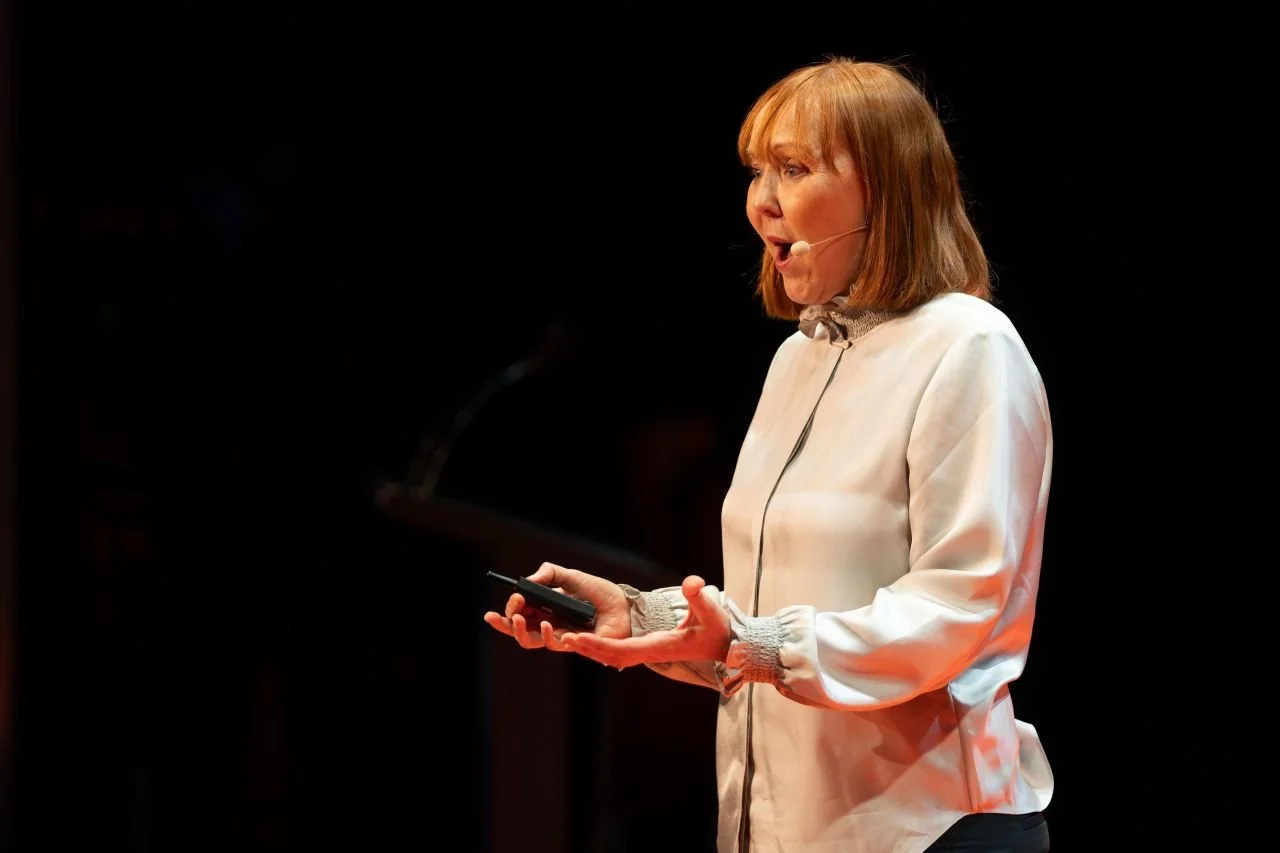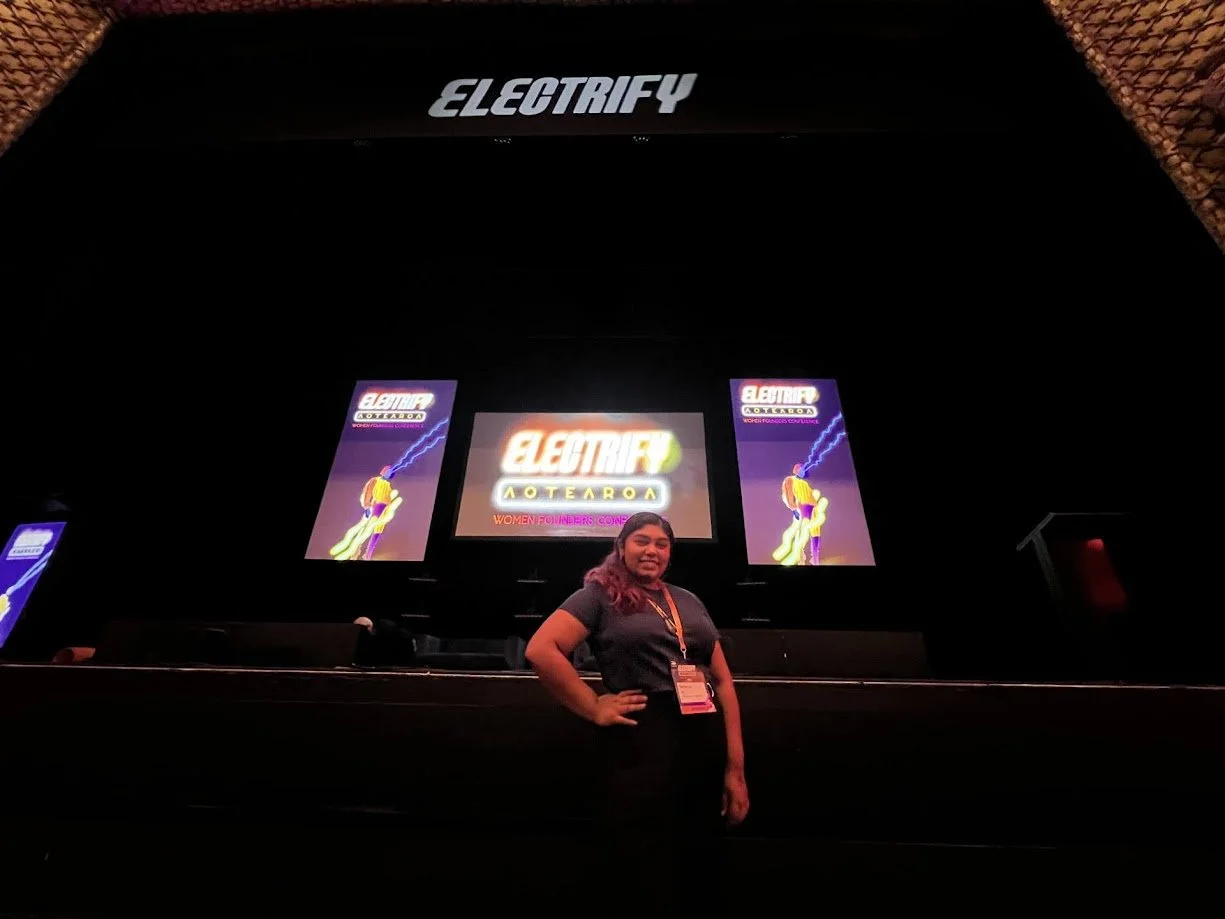Charged up -Electrify Aotearoa 2024
Reflections and Learnings from Electrify Aotearoa - Female Founders Conference
The weeks leading up to Electrify Aotearoa have filled me with a strong appetite for inspiration and hope. As the daughter of small business owners—taxi drivers, salesmen, caterers, and dairy operators—business and the risk for something new have been integral to my Fijian Indian identity.
I recently finished my current role and stood on the edge of my next endeavour. I'm exploring taking some entrepreneurial leaps with Seva CoLab, an organisation aiming to build design services, leaders, and institutions of tomorrow that honour equity, Te Tiriti, and systemically underserved communities. Having been part of the start-up IndigiShare for the last five years, I can confidently say it's been one of the proudest and most beautiful teams, and I've been a part of Kaupapa. Thanks to the Fund, a founder program by the organisers, I even embraced a pantsuit moment to boost my confidence to enter the space at Electrify Aotearoa.
I arrived with hopes that Electrify Aotearoa would unlock something about my future path. I aimed to meet exceptional people (including some I fangirl over), gain a sense of direction, and fill up my cup with participants' collective wisdom and vibes.
As I stepped into the conference hall, waves of apprehension initially washed over me.
What if I'm not enough?
What if my energy is too overwhelming?
What if my pitch as Serena doesn't captivate their interest?
But amidst the sea of unfamiliar and familiar faces, my apprehension melted away, replaced by a growing sense of anticipation as the morning unfolded.
Julia Arnott-Neenee : A Spark of Inspiration
CEO & Co-Founder Fibre Fale
The conference kicked off with Julia, a speaker I fangirl over. She embodies the spirit of showing up for our people and our passions, serving the world. Her energy was infectious, setting the tone for a day of learning and inspiration. Do me a favour and follow Fibre Fale on all the socials. Julia’s fire for authenticity and showing up as your authenticity, even if it's hard, reminds me I must be my unapologetic self, even if it's scary. Also, can you start a fashion account or Pinterest, please?
.
Marian Johnson: A leading with love
CEO Ministry of Awesome
Then came Marian, whose sheer love for women founders was palpable. This event was designed with love and determination, with every aspect meticulously crafted to do things differently and support female founders. Marian's passion for women founders was unmistakable and infectious. She ensured the event was inclusive and innovative, creating a unique space for all attendees
Brianne West: Merging Environment, Practicality and Practice
Founder and CEO of Incrediballs
Brianne West perfectly merged customer-centred design and people-centred practice for environmentally-led solutions. These are the sentiments and reminders I learned from Brianne:
How you support and lead your team and culture is just as important as your brand and product.
There are more competitors than you think; people can always stick to the status quo. Your product needs to provide tangible value and address enormous systemic benefits.
Your unique story and identity are crucial differentiators. Consumers and communities increasingly seek authentic founder stories when choosing products and services.
What I loved about Brianne was how she lit up when talking about possibilities. Despite her long journey, her enthusiasm for her new venture, Incrediballs, was inspiring. She also discussed exiting her previous venture, Ethique, later than she should have due to boredom. This resonated with me, as I often see my life as a series of creations. Brianne's dedication to Ethique's future and her aspirations for sustainability highlighted the importance of knowing when to move on.
Amber Taylor: Embracing Cultural Stories Through Technology
Amber Taylor is so chill yet exudes depth from her experience and contemplation. As a Journey of Manu stan and lover of culturally affirming stories and games, everything Amber makes moves me. These are the sentiments and reminders I learned from Amber:
For the BIPOC community, your culture and stories are in demand. People want to hear and connect with them.
Aligning with your values may take longer in a world of systemic injustice, but it is the right path and ultimately more rewarding.
Create your work, even if it’s not perfect; you learn by doing
Emerging technologies like VR and AR can significantly enhance lives by bringing play and life to important everyday topics, places, and knowledge.
Build diverse teams - you do not have to do it all.
Amber's work in revitalizing and activating spaces, people, and stories through technology is incredibly moving. Her commitment to culturally affirming stories and games is a testament to the power of technology in fostering self-determination and community building.
Anna Curzon: Running Towards Fear
Independent Director
Anna Curzon shared her Xero days with immense gratitude and pride. What I learned most from Anna was the importance of making hard decisions:
"Run towards the fear." Facing your fears head-on can lead to significant growth and breakthroughs.
As your startup grows, many aspects will change. Don’t hold on too tightly to impermanent things, as this can hinder progress.
"What would you do if you were not afraid?" This question can help discern whether your decisions are driven by fear or what is truly important and needed.
Anna emphasised that being afraid of making decisions can waste time and resources. Her quote from Bear Grylls, “Run towards the fear,” resonated deeply with me, especially in a time of uncertainty in Wellington. This is a piece of wisdom I can see myself coming back to, time and time again.
She really opened and closed with the provocation—what would you do if you were not afraid? Overall, it's a great question, a guide to discerning whether our decisions are coming from what is important and needed, based on what we have learned, rooted in the ego, and maybe sentimental. This isn't bad; adding my two cents: Nothing ever is gone; it's simply composted as soil for new things to emerge.
Brooke Roberts: Creating Safe Spaces for Risk-Taking
Co-founder, CEO and Director at Sharesies
Brooke Roberts went out of her way to create dialogue for the safety and recognition of women on their journey.
From the panel discussion, I want to highlight the following points:
Not all risks are worth taking; evaluating which risks are wise and which are unnecessary is essential.
Women and marginalised communities often face higher stakes at every stage of their professional and entrepreneurial journeys.
Creating a sense of safety through community support or financial stability provides a fertile ground for taking smart and calculated risks.
Brooke demonstrated leadership and curiosity, and I couldn't help but admire her bravery in fostering a supportive environment for women founders.
Tiffany Bloomquist: The Culture of Experimentation
Head of Amazon Web Services, New Zealand
Tiffany Bloomquist highlighted the art of experimentation in start-ups and how adopting early innovation and technology like AI is founded upon this existing culture of adaptability and innovation.
The biggest takeaway from her talk was her analogy between two-way doors and one-way doors:
One-way doors represent decisions that are high cost and often have significant, sometimes irreversible consequences.
Two-way doors are reversible decisions that allow for greater flexibility and adaptability.
How might we make our decisions to be as many two-way door decisions as possible in startups?
Fostering as much chance to bias to action, giving it a go with little cost or impact if it doesn't pan out.
Katie Brown: Taking Up Space Online
CEO Te Ao Matihiko & Founder Social Good
Katie Brown was relatable and determined for all of us to take up our space online.
I personally struggled with this as someone who never felt “ready” or knew enough to present information online or that content for the kaupapa (can and ideally should exclude me from it). However, with Brianne's words in my head, I was ready to take on the advice.
This talk really helped me commit to sharing my content and skills more externally because I am valuable, not just my service or actions in my story.
Katie is fun and accessible. She made something that can be filled with anxiety and trepidation and flipped it. She reminded us that we owe it to our mahi, communities, and selves to be a bit more visible to the world. It's not wrong to gass yourself up. Others do it all the time.
What I learned from Katie
You do not have to boil the ocean
Pick the topics that you are passionate about on
What are your swim lanes of discussion (so what areas do you feel you can engage in and, therefore, places you do not have to engage in)
Intentionally tell the algorithm what content you want, engage with the content and, more importantly, with your chosen online communities.
Go where your audience is. You don't have to do everything
Post ideally once a week. Do not be precious too much on it; don't psych yourself out of it
Focus on informing, educating, inspiring and celebrating [OMG, a framework for life]
When building a brand and content, remember to show your values, and a fantastic way to do that is by highlighting and promoting amazing people [never be stingy on praise]
People are not going to find you unless you make yourself known
People want to receive your unique perspective and story.
Justin Milano: Balance in Leadership
Founder & CEO Abroad.io
Justin Milano resonated with me as if he was talking to a friend and being a philosopher. Throughout my career, I've realised that systems change through external actions, internal reflection, and personal growth.
His words resonated deeply with my approach as a Liberation-led designer and creator.
Several points he made struck a chord with me:
Visionary leaders possess the capacity to embrace uncertainty and envision what's possible. This comes from a foundation of wellness and capacity.
Ideas that sink or swim by our egos, and it is our responsibility to build the skills and practices to be influential founders and give ourselves and our mahi the best chance to thrive.
Startup environments often prioritise Eurocentric, capitalistic norms, which can hinder the development of inclusive and restorative practices.
Balancing hardness (masculine) and softness (feminine) in creation is crucial; without it, female founders are often pushed to operate solely within a masculine framework, which limits everyone's potential.
The statement "You are the leader you are seeking" moved me profoundly. It reinforced my belief in the importance of inner healing as foundational to effective leadership and my approach to solidarity work.
Justin Milano's insights reminded me of the transformative power of integrating personal growth with external actions in creating meaningful change.
Irina Miller: Celebrating Resistance and Obstacles
Co-Founder & CEO Daisy Lab
She shared a compelling journey: from a thought that evolved into a problem, sparking an obsession and relentless pursuit of knowledge. This journey led to a concept that awaited its moment to shine, eventually becoming her voyage.
Irina also recounted the story of a founder at Daisy Lab with a diverse skill set but needing a scientific background compared to her co-founders. Initially plagued by imposter syndrome, she recognised the critical role of her generalist skills and communication abilities in the team's success. Irina openly includes her experiences as a neurodivergent individual, and I sincerely appreciate that acknowledgement and her bringing this lived experience into her talk.
She passionately celebrated resistance and obstacles as indicators of growth opportunities. Irina shared numerous instances where her logical solutions faced scepticism and ego-driven opposition, yet she persevered.
Irina's enthusiasm was contagious, particularly when discussing innovations like precision fermentation in food technology. Her ability to turn challenges into opportunities left a lasting impression, inspiring others to embrace new ideas and possibilities.
Irina emphasised the uniqueness of perspectives and insights, noting that just because an idea originates with you doesn't mean it's common knowledge.
A team needs diverse skills and strengths. There is no hierarchy on what is more important; that’s what a team is all about
View resistance and obstacles as signs of growth and potential breakthroughs. Normalizing these challenges can help you avoid discouragement.
Your unique perspective and skills are invaluable. Do you undervalue your wisdom?
Her passion for her work in precision fermentation food technology was infectious, and it was so much fun to learn about a new topic and field of science and how it can transform the dairy landscape in Aotearoa and worldwide.
Rebekah Campbell: Goal-Setting, Taking Action and Keep Showing Up
Entrepreneur & Author
Rebekah Campbell shared a narrative akin to Elle Woods from "Legally Blonde," recounting her adventurous journey of setting goals, taking action, finding love, and navigating life's challenges with resilience and determination.
Her words of wisdom and her process to take action was:
Write your goals down: Rebekah emphasised the importance of documenting goals, noting that this simple act can clarify intentions and provide a roadmap for progress.
Consider the framing of your goals: She differentiated between personal goals, which are more about personal growth and input, and professional goals, which focus on outputs and achievements.
Taking the plunge: Rebekah encouraged taking bold action, likening it to diving into cold water, acknowledging the initial discomfort but emphasising the transformative potential of such leaps.
Perception vs. reality: She challenged the perception of difficulty, reminding us that sometimes our fears and hesitations are exaggerated, and bold requests can lead to unexpected opportunities.
Consistency and persistence: Rebekah exemplified the importance of persistence in achieving goals, advocating for relentless pursuit and resilience in the face of setbacks.
Know what you want: Reflecting on personal growth, she advised regularly assessing desires and aspirations to ensure they align with personal fulfilment rather than external expectations.
It's never too late: Rebekah celebrated that entrepreneurship journeys can start anytime in someone’s life. She shared her journey of starting anew in her thirties, emphasising that innovation and purpose transcend age.
Rebekah's storytelling was engaging, and her advice on goal-setting and taking action was practical and motivational. She reminded us that it’s never too late to pursue our dreams and that consistency can open many doors.
In conclusion, the Electrify Aotearoa—Female Founders Conference was a transformative experience that inspired me and brimmed with action.
Throughout the day, I had the privilege of meeting exceptional individuals redefining entrepreneurship with their passion, resilience, and innovative spirit. Each speaker brought a unique perspective and valuable insights that resonated deeply with my journey as a woman founder. From embracing fear and taking calculated risks to celebrating diversity and fostering inclusive spaces, the conference reinforced the power of community and shared purpose.
A few takeaways for anyone reading this article:
Women are still undervalued in start-up spaces.
Women are under-invested, receiving only about 2% of VC funds. Invest in us more.
Women often provide higher utilisation of funds and think more intersectionally and inclusively.
Everyone has a role in supporting a woman founder, from a LinkedIn post to investment.
Systems will not change unless you do. We cannot assume these structures will be fixed by those in power, invest your time, money and skill into the female founder ecosystem
Culture and identity are our strengths. Show your flame loud and unapologetically. Our concepts received many blank stares and laughs because they were culturally led.
Take up your space online and engage and celebrate others, build your community and your “swim lanes” of topics to engage online
Women make space for women, especially marginalised founders. We cannot create paradigm-changing inventions as a solo endeavour or by hogging all the resources. We need to consider it a system, a community we actively invest in. Scarcity is a human experience, but with power, we can often be mindful of how female founders can prevent intersectional progress, too.
Even when pushed to go fast, you, as the founder, determine the pace for delivery and impact that keeps your business alive.
Ethical and equitable start-ups should be the soul of your business, from your practices to your offering. They have a role in our collective liberation.
If you have an idea, do your due diligence, but do not assume that just because you thought of it, everyone else has, too.
Be obsessed with your end-user. As a design researcher and service designer, I love this one. It doesn’t matter how shiny your idea, vision, or business is; if you are not designing for the end-user experience, value proposition, and long-term engagement, you are potentially only following trends, not insights.
